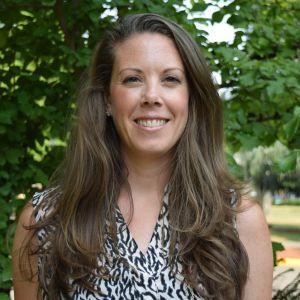Adrianne Huxtable earned her B.Sc. (Hons) in Human Physiology from the University of British Columbia (Vancouver, B.C., Canada) and her Ph.D. in Physiology from the University of Alberta (Edmonton, A.B. Canada). She then continued to pursue research as a postdoctoral fellow at the University of Wisconsin – Madison before joining the Department of Human Physiology in 2015.
Research in the Huxtable laboratory focuses on the neural control of breathing (the central brainstem and spinal cord networks), with a specific focus on how inflammation (throughout the body and/or brain) undermines breathing. Breathing is a “simple”, rhythmic motor behaviour essential to maintaining life and homeostasis of blood gases (oxygen and carbon dioxide). The respiratory system begins generating episodic breathing rhythms in the womb and more regular rhythms abruptly at birth to begin exchange of blood gases, where it remains active until death. Despite the necessary robustness of the system, it is not a hardwired, immutable system even in adulthood. The respiratory system must be plastic (learn from previous experiences) and adapt to changes in state (sleep, wake), activity, aging, and disease or injury. The goal of Huxtable laboratory is to understand how the unstable respiratory network of premature or newborn infants are affected by inflammation, which commonly occurs with illness, infection, injury, and during the normal birthing process. Additionally, Dr. Huxtable’s research has shown a vulnerability of respiratory plasticity (a long-term change in respiratory motor output) in adults to inflammation. The current focus of the lab now is on whether inflammation during the perinatal period alters long-term respiratory network function and motor plasticity into adulthood. Research in the Huxtable laboratory combines concepts from neuroscience, respiratory physiology, and the immune system to answer basic science questions.
Dr. Huxtable currently has undergraduate, graduate and postdoctoral positions open in her laboratory and is happy to discuss research opportunities with interested trainees.
Back to Top

